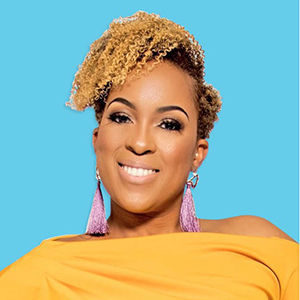Explore Related Nurse Specialties
How to Become a Dermatology Nurse in 10 Steps

Dermatology Nurse Career Snapshot
Where you’ll work: Dermatology offices, outpatient surgery centers and plastic surgery centers.
What you’ll do: Work alongside dermatologists to provide care to patients with a range of skin conditions. They may assist with procedures as well as educate patients on how to take care of their skin.
Minimum degree required: An ADN or higher is needed to start as a dermatology nurse. Although it’s common for some employers to prefer or require at least a BSN, dermatology nurses may have an easier time starting off with just an ADN.
Who it’s a good fit for: Dermatological ailments can cause a lot of embarrassment for patients because of how visible they can be. A good dermatology nurse helps patients feel relaxed and confident.
Job perks: Dermatology nursing is not as fast-paced as other nursing specialties like an ER or Critical Care nurse, so the position tends to be more relaxed. They also tend to have a typical nine-to-five schedule, which may be more manageable depending on your preference.
Opportunities if you pursue a higher degree or certification: Getting a certification as a Dermatology Nurse Certified (DNC) ould open doors to more advanced nursing positions, which could lead to more responsibilities as well as higher pay. In addition, earning an MSN or DNP could allow you to become a dermatology nurse practitioner.
Median annual salary: $86,070
What is a Dermatology Nurse?
A dermatology nurse is an RN who works alongside a dermatologist to perform procedures, treat wounds, and provide patient education. You’ll need at least an Associate Degree in Nursing (ADN) and a few years of experience as a registered nurse (RN) before you can start applying for dermatology nursing roles.
In this Article
Steps to Become a Dermatology Nurse | Job Description | Workplaces | Salary and Job Outlook | Is This Job Right for You?
Steps to Become a Dermatology Nurse
Use these steps as a guide to pursue a career as a dermatology nurse.
Find a nursing program and school.

Potential students considering a nursing degree will find everything from on-campus bachelor’s degrees at traditional four-year universities to accelerated online programs. The right school for you depends on your personal circumstances, but it’s a good idea to be on the lookout for:
Accreditation: Any nursing program you nursing program you attend should be accredited. Accreditation means that a program meets all the necessary state requirements and can deliver a quality education. Plus, accreditation will allow you to apply for federal student aid and transfer your credits if you choose to advance your degree later.
Online and part-time program options: If you’re working, raising a family, or have other commitments that would make attending a nursing program full-time difficult, it’s a good idea to look for online programs. These programs allow you to complete your courses remotely and then perform your clinical hours at local facilities. Part-time programs with night and weekend courses might also be a good fit.
Career services: Check out what type of assistance schools offer to students looking for a job after graduation. Look for things such as NCLEX preparation sessions, career counseling, job placement, and faculty advising.
Decide on a degree.

You can earn licensure as a registered nurse (RN) with either an ADN or a bachelor of Science in Nursing (BSN) degree in any state. Either degree will position you to take the National Council Licensure Examination (NCLEX-RN) exam and apply for licensure in your state. One of the big differences between the two degrees is the time it will take to earn them. An ADN can generally be earned in about two years, while a BSN generally takes four. This can make an ADN an appealing option for people who want to start their RN careers quickly.
However, a BSN degree can prepare you to take on higher-level roles. A BSN is a more advanced degree, and many specialty nursing roles and employers do require BSN-educated RNs. Additionally, a BSN can serve as a strong foundation if you want to advance your education later in your career.
So what’s best if you’re thinking about dermatology nursing?
“You can start with either an ADN or a BSN because your experience is really what’s going to count most in this field,” says Tashara Lester, FNP-C, a nurse practitioner at U.S. Dermatology Partners in Dallas, Texas. However, “if I’m talking to people looking into school, I always recommend earning a bachelor’s. It’s always best to have a degree that lets you do more. A BSN is always going to (allow for) more opportunities so I do think it’s a better choice.”
Apply to a school.

Your specific admissions requirements will depend on the school and degree you choose. For instance, you might be able to start an ADN program at a community college or online program with a GED, but you’ll likely need a high school diploma and solid GPA to begin a BSN program at a competitive university. However, there are a few requirements that are common across programs. These include:
• A high school diploma or GED
• A pre-admissions interview
• An admissions essay
• Letters of recommendation from teachers, supervisors, or colleagues
• Satisfactory grades in science and math courses
• SATs, ACTs, or admission exams
• A criminal background check
Complete your coursework and graduate.

Although the exact classes you’ll take will change based on the school, program, and degree you select, all accredited ADN and BSN programs will prepare you to take the NCLEX-RN and work as an RN. This means there are some core nursing classes you can count on in subjects such as patient assessment, nursing practice, behavioral health, pharmacology, and anatomy. You’ll also need to complete a set number of hands-on clinical hours. These hours will allow you to gain hands-on experience performing important clinical nursing skills. Most programs require between 700 and 800 hours.
You generally can’t focus on a particular nursing specialty during an ADN or BSN program. On-the-job experience is what will help you gain the specific skills and knowledge you’ll need to succeed as a dermatology nurse after you graduate. You might be able to take an elective or attend a seminar in an area related to dermatology nursing, such as wound care, but the focus of your ADN or BSN degree will be general nursing.
Take and pass the NCLEX.

The NCLEX-RN is a national nursing licensure exam administered by the National Council of State Boards of Nursing (NCSBN). You’ll need to take and pass this exam before you can apply for your RN license. The NCLEX-RN is a computer-based exam with a maximum of 265 questions. You’ll have five hours to complete your exam. The results will be sent to your state board of nursing. If you’ve passed, you’ll be ready to move forward and receive your license. If you didn’t, you can retake the exam. The number of times you can retake the NCLEX-RN—and how often you can retake it—is determined by each state’s board of nursing.
Earn your registered nurse (RN) license.

Your state will ask for a few additional documents once you pass the NCLEX-RN. Requirements vary by state, but you can count providing:
• Proof of your education
• Proof of your clinical hours
• A criminal background check with FBI fingerprinting
• CPR certification
Some states might also ask for a recent picture, letter of reference, and proof you’ve resolved any past negative marks on your criminal record. You’ll receive your nursing license once your state board of nursing has all of the information they need. Most states require that RNs renew their license every two years. Generally, this involves taking continuing education courses, working as an RN, and making sure you send in the right paperwork.
Gain experience as an RN in areas related to Dermatology Nursing.

It’s very unlikely you’ll find an entry-level dermatology nursing role. That means you’ll need to gain experience as an RN before you can work as a dermatology nurse. You can get your start in nursing roles with skills that can translate to dermatology nursing later. For example, medical-surgical units often hire entry-level nurses and great places to gain wound care experience. The operating room is another good choice since dermatology nurses assist dermatologists with surgical procedures.
Lester says that one of the best ways to break into dermatology nursing is to gain experience as a cosmetic or aesthetic nurse. A plastic surgeon’s office or medical spa can be a stepping stone to working with a dermatologist in a private office or surgery center.
“A lot of times dermatologists’ offices will have medical assistants on staff instead of nurses, but if you have the experience you can get there,” says Lester. “I knew I really wanted to be in medical dermatology nursing, so I worked on the cosmetic side as a path to working in dermatology.”
Consider earning a DNC designation.

Certification isn’t required to work as a dermatology nurse, but earning one can help boost your career. A certification is a great way to show that you have the skill, knowledge, and dedication you need to take on a dermatology nursing role. It can help you stand out to employers and might help you secure roles.
The Dermatology Nurses’ Association (DNA) offers certification at both the RN and nurse practitioner (NP) levels. RNs can earn the designation of Dermatology Nurse Certified (DNC). To sit for the exam, you’ll need at least two years of dermatology nurse experience, with at least 2,000 hours of that experience logged in the past two years.
Keep your credentials current.

It’s important to keep your RN license and any certification you’ve earned current. The requirements will depend on your state and any specific certifications you’ve earned. Generally, you’ll need to:
• Complete a set number of continuing education hours every two years
• Work a set number of hours over a two year period
• Keep your CPR and other relevant certifications current
• Pay a renewal fee
Consider an advanced degree.

You can advance your career by becoming a dermatology nurse practitioner. You’ll need at least a master’s degree to work as a nurse practitioner, and Doctor of Nursing Practice (DNP) degrees are becoming increasingly popular.
In fact, several major organizations are advocating for the DNP to become the standard entry-level degree for nurse practitioners and other advanced practice registered nurses (APRNs).
The requirements for nurse anesthetists are already changing, and changes to nurse practitioner requirements could start as soon as 2025.
For now, a Master of Nursing Science (MSN) degree can get you started as a dermatology nurse practitioner. Bridge programs are offered at universities around the country to help current RNs with ADN degrees earn their MSN degrees quickly and step into these advanced roles.
Once you have your MSN you can take a certification exam to apply for NP licensure in your state. There is no specific certification exam for dermatology nurse practitioners. Instead, you can earn a generalized nurse practitioner certification such as family nurse practitioner or adult-gerontology nurse practitioner certification to meet licensure requirements. You can then earn optional certification from the DNA once you’ve met the experience requirements.
What Do Dermatology Nurses Do?
Dermatology nurses work alongside dermatologists and assist with procedures. The exact procedures will depend on where you work. For instance, if you work in a dermatologist’s office you’ll assist with smaller procedures such as skin biopsies. As a dermatology nurse who works in outpatient operating centers, you might assist with the removal of cancerous moles. Other common procedures include:
That doesn’t mean you’ll only be assisting with procedures. Lester says that you’ll also be responsible for tasks such as suture removal, wound care, and contacting patients with their results. Patient education will also be an important part of your day.
A dermatology nurse will assist with procedures and educate patients.
“One of the biggest responsibilities is teaching,” Lester says. “Patients with conditions such as psoriasis often need biologics and have to learn to give themselves their own injections of that medication … a nurse will teach them how to safely do those injections at home.”
Where You’ll Work
Dermatology nurses work primarily in dermatology offices and in outpatient surgery centers. They might occasionally find work in plastic surgeons offices that also offer dermatology services, but this is less common. As healthcare and nursing roles continue to expand over the next decade, there might be additional employers seeking the skills and experience of dermatology nurses.
Dermatology Nurse vs Cosmetic Nurse: What’s the Difference?
The duties of cosmetic nurses and dermatology nurses can be very similar. Both types of nurses are focused on skin, and procedures such as Botox or laser treatments can fall into both job descriptions. However, there are some major differences.
Cosmetic nurses, also called aesthetic nurses, are nurses who specialize in clinically-based skincare. Nurses who work in this increasingly popular specialty perform procedures such as botox, chemical peels, dermal fillers, micro-needling, and laser hair removal. By contrast, dermatology nurses treat skin conditions, test for cancers, help diagnose allergies, and help heal wounds.
In addition, some states allow cosmetic nurse practitioners to operate facilities known as medical spas, completely independently. Medical spas combine the services of a luxury spa with some of the services you’d find at a plastic surgery or dermatology office. Dermatology nurses always work with dermatologists.
Median Dermatology Nurse Salary
The U.S Bureau of Labor Statistics (BLS) doesn’t track data specifically for dermatology nurses, although they do track salaries for RNs, whose median salary is $86,070. Take a look at RN salaries by state.
Healthcare roles overall are continuing to expand and grow. The BLS is projecting a 5.6% job growth for RNs through 2032. Dermatology nursing roles will be part of this growth. The largest increases in dermatology nursing roles, however, are likely to be for dermatology nurse practitioners.
Job Outlook for Dermatology Nursing
The BLS is projecting a staggering 44.5% growth for nurse practitioner roles through 2032, and Lester believes that dermatology nurse practitioners will be in demand over the next decade.
“I would say that for nurse practitioners there is definitely a demand and I think it’s going to increase,” she says.
Is This Job Right for You?
Dermatology nursing is a unique nursing role. You’ll still be performing patient care, but your day will look very different than the day of an emergency room nurse or critical care nurse. In fact, if you’ve been seeking a nursing career without the fast pace of some hospital units, dermatology nursing might be a great fit.
“So often in many other types of nursing, you’re really responding to emergencies,” Lester says. “In dermatology nursing, you’re dealing with one patient at a time. Patients are normally long-term and you see them for months or years.” Moreover, dermatology nursing gives you a greater chance to see patients heal and recover.
Because dermatology patients are usually long-term, dermatology nurses have the opportunity to watch them heal and recover.
“One thing that I think is really great about this field is that you can see patients’ healing,” she says. “Everything you do in dermatology makes changes to the skin—the largest organ on your body. So you can really see the impact of treatment.” The immediacy of your work is less apparent in primary care, for example, in which nurses may oversee a patient on blood pressure medication and monitor their progression over time. “(That offers) none of the big, visible changes like we see in dermatology,” Lester says.
However, dermatology nursing isn’t for everyone.
“You have a set schedule, normally nine to five, no weekends,” says Lester. “You’re doing the same procedures and the same daily things, but that can get repetitive. It can be boring for people who don’t enjoy that kind of environment.”
Dermatology nursing offers a slower pace than specialties such as ER and critical care nursing.
You’ll also need to be able to make your patients feel comfortable. All nursing roles require compassion and great communication skills, but Lester tells us this is especially important in dermatology nursing.
“You have to be able to meet these patients where they are and communicate with them,” she says “Patients who are coming in often feel really self-conscious about their skin. They might be embarrassed to be there. So you need to be understanding and have the right approach.”


With professional insight from:
Nurse Practitioner, U.S. Dermatology Partners, Dallas
